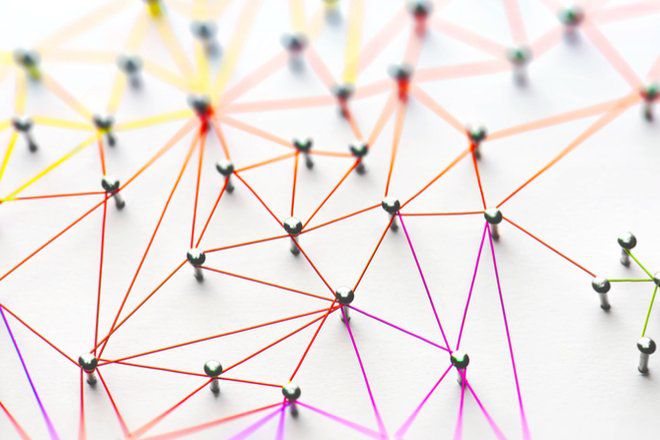Blockchain
How Blockchain Can Solve Social Media Privacy

The main disadvantages of social media are the loss of personal privacy, data protection, and ownership of information. Hence the saying, “If you don’t pay for it, you are the product.” However, this “centralized” control model of social media may be a thing of the past, thanks to blockchain technology. Specifically, ethereum, which brings the next generation “decentralized” models of social media. Ethereum is an open software platform that allows developers to create and deploy decentralized applications. [1]
A good example to illustrate this is Spina decentralized reward-based professional network on the Ethereum blockchain. It was developed by Indorse Pte. Ltd., a Singapore-based blockchain company. [2]
Indorse uses a LinkedIn-style professional networking model, but members retain ownership of the data while earning rewards for sharing their professional expertise and using the platform. In other words, users are incentivized. The data ownership and reward system are based on blockchain principles of decentralization and tokenization. Tokenization removes sensitive data from business systems and replaces it with an undecipherable token that can store the original data in a secure cloud. [3]
Through its platform, Indorse seeks to solve three fundamental problems of social networking platforms: economics, autonomy and trust.
The economic dilemma of traditional social media is that a social media company can’t make money without selling your data. And the real providers of information, you, don’t get any monetary compensation, which seems unfair.
The problem of autonomy of social media refers to the concentrated control over the platform, which resides in a few hands.
The problem of trust arises from the problem of autonomy, because all decisions are taken by a centralized power.
A white paper written by Indorse highlights: “To be clear, we are not against advertising and we are certainly not against social media. However, we are against the centralization of social media. We believe the solution is a new model of social network, a decentralized one that puts ownership of information back in the hands of members.”
How Indorse Works
Indorse uses internal rewards, called Indorse Rewards, and a reputation system, called Indorse Score, to incentivize members to not only add their skills or achievements, but also to support other members.
Indorse is trying to engage members to actively participate on the platform. This is how members earn Indorse Rewards. The decentralized platform also engages advertisers, who purchase space using Indorse Token (IND Token) and are purchased through an exchange. A portion of these IND tokens will be shared with members who create content.
Indorse has completed its token presale, which ran from July 26 to July 29, 2017, receiving 13,807 ether (ETH) in the public presale and approximately 4,000 more ether in private placements. Indorse held a Token Sale from August 8, 2017 to September 8, 2017. Here’s a snapshot from his fact sheet. [4]
Growing trend of ICOs
Raising money for projects by selling “Tokens” through an Initial Coin Offering (ICO) is becoming increasingly popular. According to UK-based CoinSchedule, which provides statistics on cryptocurrency ICOs, $20 billion has been raised through ICOs as of October 4, 2018. This exceeds venture capital investment in companies related to Bitcoin and blockchain technology. [5]
In a 2017 report, the Securities and Exchange Commission (SEC) stated that “issuers of blockchain-based or distributed ledger-based securities must register offers and sales of such securities unless a valid exemption applies.” The report further added, “Those who participate in unregistered offerings may also be held liable for violations of the securities laws. Additionally, exchanges that provide trading in these securities must register unless they are exempt. The purpose of the registration provisions of the federal securities laws is to ensure that investors are sold investments that include all appropriate disclosures and are subject to regulatory oversight for investor protection.”
Eddy Travia, CEO and co-founder of Coinsilioshared his thoughts with Investopedia: “The SEC’s message following the DAO review did not surprise the market or the crypto community. The positive aspect of this message is that tokens are being taken seriously by regulators around the world and a clear stance from regulators will serve the token economy as a whole.” He further added: “There are thousands of token smart contracts and thousands more to be created in the next six months. This puts enormous pressure on founders to find suitable legal counsel, technical experts, and marketing consultants who have experience in a token generation event.”
The bottom line
Indorse creates a parallel decentralized version of a professional networking platform. Other similar projects that are following suit will one day build a decentralized world in social media networking. Together, decentralized platforms and tokenization are emerging in a big way and if the trend continues, more regulations will be created over time.
1. Ethereal
2. Spin
3. Tokenization
4. Token Sale
